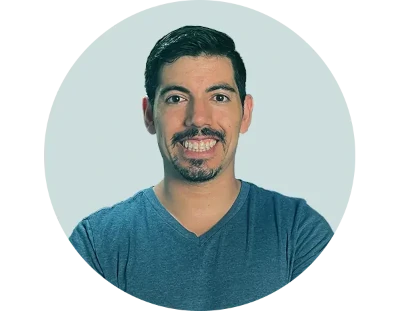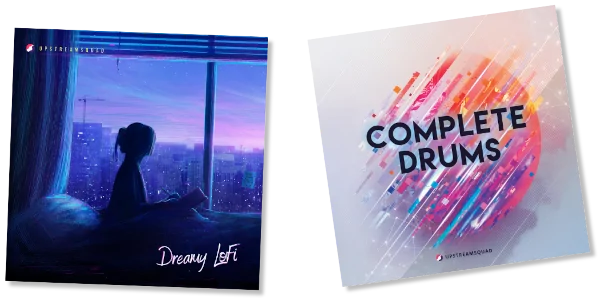“In 2017, it’s really not a big deal if a beginner producer doesn’t know theory. All you have to do is go on YouTube and search “basic music theory” or “how to start a song in FL / Ableton / Logic” and you can get started in making music”
You make great use of vocal chops in your music. Are there any specific processing techniques you use to get great sounding vocal chops and how do you go about arranging them? Copy and pasting and pitching around?
We’re glad you like our vocal chops! Shout out to Skrillex and DJ Snake for pioneering this style of dance music. We have experimented with vocal chops for a long time and as the style becomes more popular we had to figure out ways to make our chops sound more unique. Depending on individual tracks, we have developed several different approaches. If we want to keep it chill, then we’ll do a one-shot chop lead complimented by variations of vowels as fills. If we want to do an artistic unique vocal chop melody, then we’ll use the “Slice” feature on the Ableton Simpler, come up with the vowels we like, resample them, then pitch them individually. Sometimes we would play with formants or other FX to make it sound more unique. A rising trend is saturating a sample to create a retro sounding distorted vocal cut, which we also do a lot.
Producers get stuck in that 8 bar loop and can’t seem to break out of it. What are your techniques for expanding your ideas out into a full arrangement.
If you’re stuck in a loop, you better try a different project. We work pretty damn fast if we are inspired, but if we find ourselves looking at a project for two hours without much progress, then we will just chill and tackle it on another day. We often found inspiration by testing out MIDI files from sample packs; finding progressions or melodies that inspire us can really help a lot. Other times we would spend an hour or two surfing on Splice.com to find cool samples, until we start getting nauseous then we stop and get back to producing hahaha.
When do you know when it is time to call the song done and stop producing and mixing? It is so easy to over listen to your track and begin to overproduce. Where is that fine line for you guys?
It happens way too frequently for us. We seek perfection in our mixdown, therefore we hate the process. But after producing for this long, it kind of just comes naturally during the production session, hence time / experience helps a lot. We always work with the mastering chain on, and after completing the track we tweak the chain based on how the track sounds. Also by tapping into the pop music realm we’ve learned to keep our projects simpler for “easy listening”, obviously not the case if we decide to make a banger but often “less is more.”

“We often found inspiration by testing out MIDI files from sample packs; finding progressions or melodies that inspire us can really help a lot. Other times we would spend an hour or two surfing on Splice.com to find cool samples, until we start getting nauseous then we stop and get back to producing.”
The mastering in your tracks is very clean, upfront, and powerful. Are there any tips for getting this type of modern dance music mastered sound, assuming that your mix down is already well balanced.
Thank you, we’re really glad to hear that! We try our best to achieve the same quality mix & master for every track although a lot of times labels would impose their service on us. On our master, we have:
1. EQ– cut out everything below 30Hz and everything above 192000Hz
2. Izotope Image– make everything under 150~180Hz mono depending on each track
3. Glue Compressor– even out the mix a bit
4. Limiter
Aspiring producers these days lack patience. They want to produce the next big hit after they’ve only been producing for a short period of time and they get discouraged when the results aren’t immediately there. What motivated you to keep learning and improving through the beginning stages of your music career and what advice would you give to impatient producers.
We are extremely impatient and this industry gives us anxiety a lot of times. We’ve read so many DJ interviews emphasize persistence, and guess what? They’re 100% right. Be hungry, motivated, persistent, and most importantly, stay humble. Learn to handle rejection, turn those into fuel, and learn from more successful peers. We know it can get frustrating when big producers don’t respond to you, but when that happened to us, we just told ourselves “just keep working hard, one day we’ll get there”. We were pretty much on our own for the first 1.5 year of our career, but eventually we found more likeminded producers that have the same drive, passion, and vision. Now we have multiple social media support groups and a growing list of industry contacts that we talk to almost every week. Just remember, Rome isn’t built in one day.
In today’s music industry, building a dedicated fan base is important to the success of your career as an artist. Many artists starting out or even artist that have been releasing music for awhile struggle to grow an audience and reach a large number of people with their music. How did you grow your audience when you were first starting out and what advice you give artists looking to build a following?
It was a long and painful process of learning and growing for sure. In the beginning we thought SoundCloud was everything. We actively participated in remix competitions, uploaded the remixes and poured in resources to promote our tracks. It worked well in the beginning but eventually copyright strikes have forced us to take a different approach. With Spotify rising to dominance we began focusing on original tracks, and we have been on the grind to get tracks signed to record labels such as Armada, Spinnin, Trap Nation, Strange Fruits etc. Some record labels are better at certain things than others and obviously don’t whore around yourself to 10+ labels, but it’s always good to have a few established labels supporting you and certifying you.
For better or for worse, social media is a big part of an artists career. How do you use social media to build your audience and brand?
Social media is a hard one. We wish we could just focus on the music and chill, but reality is that you need organized social media management to create a solid branding. As producers we need to constantly get people to be interested in us, and creating constant good content can be difficult and exhausting. We try our best to present our true selves on social media and always try to engage with fans as much as possible. For Instagram, it’s important to not only post photos / videos but also use Stories to show fans what you’re up to. Although we don’t use Twitter as much, we found that most DJs prefer to be tweeted for some reason.
What is next for you guys? Upcoming shows? big releases?
We have a Spinnin’ track coming out on Friday October 13th, and it’s been our goal to get on Spinnin’ since we embarked on this journey so we’re super excited for that. After that we have one track per week scheduled with awesome labels such as Armada, Enhanced, Thrive, Illicit etc. until the end of the year so there will be A LOT of new music. We will always stay humble and look out for a BEAUZ tour in 2018!




